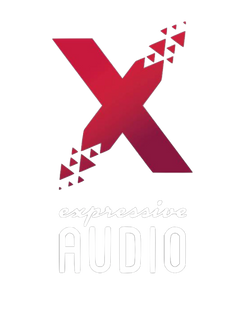From when I began my musical education at 11 years old, to now 19 and going on to read music at university, I have not only performed a large amount of repertoire live, but I have also recorded two commercially available CDs, linked at the bottom of this page. One was as part of the Portsmouth Cathedral Choir, called ‘Verbum Caro factum est’, and one was with the Portsmouth Grammar School Senior Brass Band called ‘Encore!’. Both were incredibly interesting and eye opening experiences which I am extremely grateful to have been a part of.
During my fourth year in the PGS Brass Band, our conductor Graham Brown (who himself boasts 40 years leading the band!) arranged for a professional recording company to produce a CD of the band members’ favourite pieces from over the years. It was recorded over two blisteringly hot Summer Sundays during the school holidays, with seven pieces recorded each day.
As I mentioned in a previous article (Day 7 of Audio Advent), a percussion section has to be set up in a remarkably efficient and cleverly thought out way, but I had never before had to account for the sheer number of microphones needed for a professional recording. Until that point I had only ever seen a single microphone doing a basic recording of the various live concerts over the years. So the first challenge was arranging the instruments in such a way as to allow for the best microphone placement, and the second was making sure the microphones didn’t obscure the sheet music! Seeing a room full of microphones on stands made the performance room seem more like a hazel copse, and the organised chaos of cables on the floor was ready to trip up a scurrying percussionist at a moment’s notice.
Actually recording the music was the most interesting part, however. Our sound engineers set up their equipment in a separate room, so had to use an intercom system to talk to the musicians. Before starting any recording, the engineers had to make sure each microphone was working and tuned correctly for the instrument it was picking up. This meant each instrument had to play a few bars on their own upon hearing their instrument called out over the intercom. During recording, we’d hear instructions barked such as ‘Flugel re-take from bar 39’ or ‘Again from letter C, but more bass drum’. Occasionally we’d all sigh with relief when we heard ‘time to give your chops a rest’. What surprised me most was the amount of control the engineers had over the finished product using their recording software. We rarely recorded a piece in one go, especially with the soloist’s pieces, and even if we took one take, we’d then record snippets to cut in to replace audible mistakes. This meant that recording a five minute piece would invariably take 45 minutes to an hour, which was quite tedious but the overall experience was highly valuable.
The second CD I have been a part of is a choral Christmas CD by the Portsmouth Cathedral Choir. Choral music has always been a part of my life, both listening and performing, and then recording with this experience. At the request of my percussion teacher, I joined the Portsmouth Grammar School Chamber Choir to further my musical experience and develop my aural skills. Although apprehensive at first, I grew to really enjoy it, which lead me to join the Portsmouth Cathedral Choir, known as Cantate, the following year. I sang with Cantate for two years, and during that time we recorded a CD of traditional Christmas music such as ‘Gaudete’ and ‘On Christmas Night’. As is often the case for musicians, Christmas comes early in the form of rehearsing Christmas music, and this was no different. In order for the CD to be ready for Christmas, we recorded most of the music in the preceding Summer. Many of the pieces were arranged for only a small number of voices, and these were performed by the Lay Clarks and choral scholars, which (luckily for me!) meant I was only needed for a couple of recording sessions.
Compared with an entire band’s worth of musicians and microphones crammed into a small, scorchingly hot room, the recording experience in Portsmouth Cathedral was far more pleasant. The microphones still loomed ominously, threatening to pick up even the tiniest rustle, sniff or discreet clear of the throat, however there was, at least, plenty of space between each singer, and a cool stone building to maintain a comfortable temperature. Once again, I realised just how many times a sound engineer is prepared to ask you to sing the same line in order to get the perfect take to use in the final CD; as I was still a fairly new singer, this was reasonably stressful, never knowing whether it was me that caused the word ‘cut’ to be called out! The thing that struck me most of all however, was the completely different atmosphere and type of pressure that is created by a recording environment. It can feel rather cold and emotionless, simply being ordered to play chunks of the music over and over again, without any audience smiling or visibly enjoying the music that you are creating. However, unlike a live concert, there is the safety net of being able to re-take, but you also have in the back of your mind the knowledge that whatever you play in that moment will be able to be re-played and re-heard countless times. As a chap of relatively nervous disposition, I can’t tell which I found more stressful!
If you’re interested, the CD of ‘Verbum Caro factum est’ is available on all major streaming platforms.





